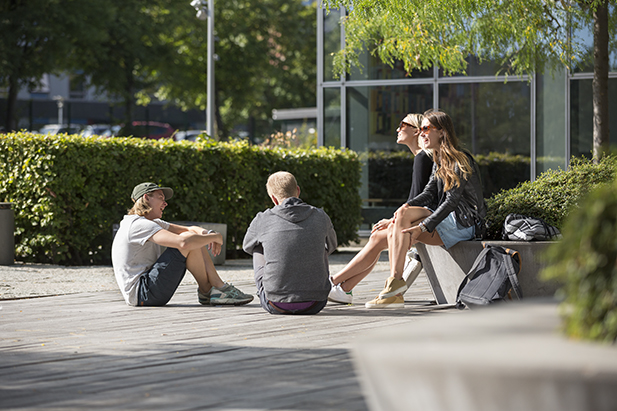Choosing well

Here are six things to get a hold of before choosing the programme that is right for you.
1) Get a solid understanding of the programmes you are interested in
We recommend that you read everything there is to read about the programme here on cbs.dk. Under each programme you can find information about which academic areas the programme contains, which challenges you will meet on the particular programme and what your options are once you have completed the programme:
- Check out all the courses of the programme in the overview of courses. Follow the link to the individual course to read the description of the course. This will give you a good idea of what it actually is that you will be doing on the programme. See all bachelor programmes here
- Understand the differences and similarities between this programme and other programmes relevant to you. You can compare up to three different programmes on Compare programmes
- Find out what current students like the most about their programmes, which challenges they have met and why they chose their programme. You can read more about their thoughts under the different bachelor programmes.
2) Consider the specific challenges of the programme
Depending on your choice of programme, you will face different challenges.
On the individual programme pages here on cbs.dk, you can read more about the typical challenges that students face during their studies. See a list of all bachelor programmes here
Think about how these challenges suit you, who you are, your strengths and weaknesses.
3) Make sure you have a genuine academic interest in the programme
To do well and to stay motivated, you must base your choice of programme on its actual content and your own academic interests and not on, e.g., career considerations or the prestige associated with the programme. Consequently, it is important to look at the different elements of the programme, and see if these will motivate you and make you want to know more.
For each programme, you can find an overview of courses, including descriptions of all courses. This will give you a good idea of what it actually is that you will be doing on the programme.
4) Have a solid plan B (perhaps even a plan C)
Once you have found the programme to be your first priority, you have come a long way. But you still have some work to do.
It is important that you are just as thorough when you investigate your second and third (and fourth, fifth and sixth) choice. You may be accepted to one of those, which means that it will be just as important that you feel happy and confident about that.
A plan B or C could also be spending another year working or travelling if you prefer that to a programme of a lower priority.
5) Make sure now is the right time to begin your studies
A lot of things can play a role when deciding whether or not you are ready to begin your studies.Check with yourself if you are mature and experienced enough, not only to make the right choice of programme but also to complete it. And whether you are motivated enough or tired of studying after three years of upper secondary school.
Starting university is a big transition and there are many things to get used to. You will meet a lot of new people. You need to familiarise yourself with a new place and new systems, rules, procedures. The syllabus is significantly larger than the one you had in high school, and you need to learn new ways to work with the courses and your own learning. For a lot of new students starting university can be quite difficult.
Consider if you might need some more time to explore your own interests before applying. There are also all the practical things such as whether you can find a place to live, and if you can make ends meet financially.
6) Speak to a student guidance counsellor
If you have crossed all the above points off your list, and you have found a programme or three you are genuinely interested in, you may have some questions that cbs.dk cannot help you with.
If you have any questions or doubts about the programme, admission or anything else, it is a good idea to contact a student guidance counsellor, who can answer your questions and help you make a choice.